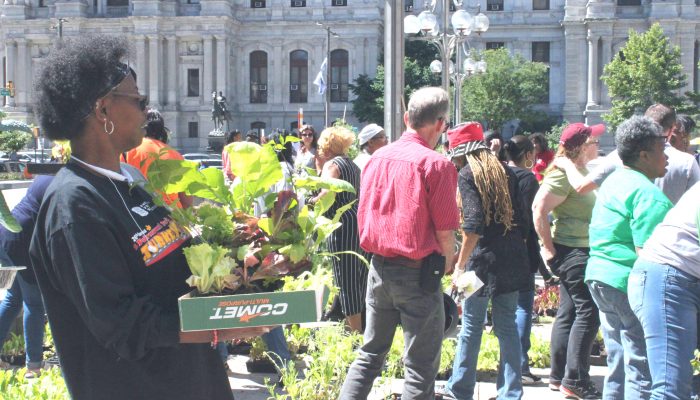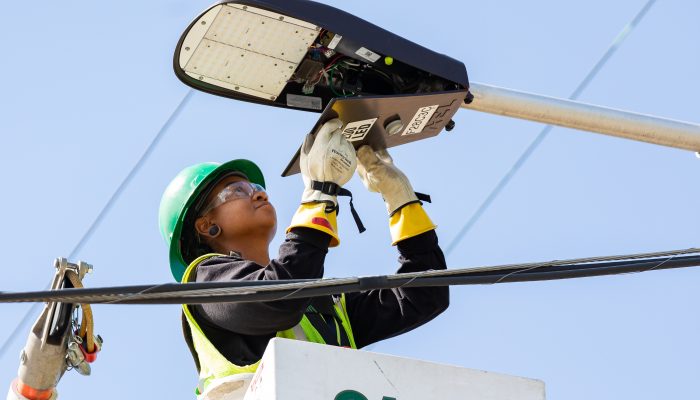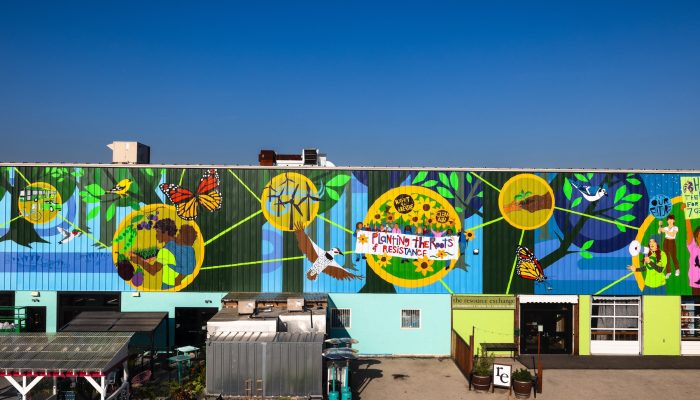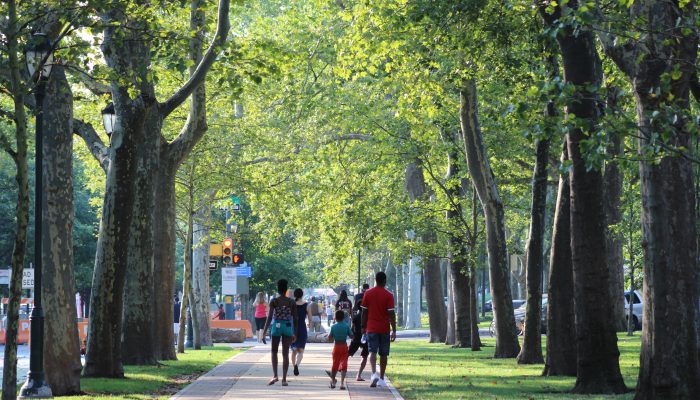“The question of what kind of city we want cannot be divorced from the question of what kind of people we want to be, what kinds of social relations we seek, what relations to nature we cherish, what style of daily life we desire, what kinds of technologies we deem appropriate, what aesthetic values we hold. The right to the city is, therefore, far more than a right of individual access to the resources that the city embodies: it is a right to change ourselves by changing the city.” David Harvey
Sustainable Food Policy
About 30% of global greenhouse gas emissions comes from our food systems. However, communities all over are shifting away from large monocultures and harmful pesticides. Both rural and urban growers are reconnecting to the land and the food it produces by practicing more environmentally friendly ways to grow food. They are reshaping our food systems by implementing fair labor practices, farming at human scale, connecting people to tools and resources, and addressing intergenerational trauma and exclusion. These efforts help to create a food system that is more sustainable.
Sustainability started as an effort to understand the impact human activity has had on people and their environments. Today, sustainability advocates for the creation of healthy and supportive communities where people and the planet can thrive.
Sustainability is about understanding and removing barriers. It acknowledges our ecological interdependence as well as our rights to be actively involved in decision-making. Sustainability also encourages us to look at intersections, how our actions might impact others. How do large agricultural businesses in the US exacerbate exploitation and hunger in the global south? How do old textile factories impact the health of Philadelphians today? How can previous land use challenge a community’s ability to grow its own food?
When it comes to food policy, what does good food look like and who are our food experts? What are the barriers to food access and what can we do to dismantle them?
FPAC
Food policy councils are one way people influence our food systems. These councils can be integrated within city, state, and federal governments or they can function independently of government. Members of the Philadelphia Food Policy Advisory Council (FPAC) were first seated in 2011 after the council was created through an Executive Order called the Philadelphia Food Charter.
FPAC encourages collaboration between city government, non-profits, residents, business owners, urban growers, farmers, distributors, and other advocates and experts. Although housed within Philadelphia’s Office of Sustainability, FPAC’s work is driven by its appointed members. Members create subcommittees to work together to understand and address issues related to Philadelphia’s food system. Subcommittees include Anti-Hunger, Food & Health, Good Food Procurement, Urban Agriculture, Workforce & Economic Development, and Zero Waste. Do any of these groups appeal to you? Learn more about subcommittee accomplishments, on-going work, and meeting times on FPAC’s website. All meetings are open to the public and newcomers are welcome to join!
Anti-Hunger Advocacy
One in five Philadelphians are impacted by food insecurity. Many of those impacted are children. As residents, activists, service providers, educators, and growers; FPAC holds a lot of experiential and institutional knowledge. On June 19th, the Anti-Hunger subcommittee hosted a Child Hunger Briefing for City Council in partnership with Councilwoman Blondell Reynolds Brown’s office. This event was a follow-up to a successful Food Resources 101 for City Council, in which Anti-Hunger members shared the breadth of food resources available in Philadelphia.
During the briefing, FPAC members shared information to encourage City Councilmembers to advocate for federal programs and other resources. For example, about 30% of Philadelphians live in poverty but about 20% are food insecure. That 10% discrepancy of people who are living in poverty but who are not food insecure speaks to the importance of food assistance programs in meeting residents’ immediate needs. It also speaks to how important it is to address the root causes of hunger: low wages, lack of affordable housing, and insufficient mental health care.
In the short term, it’s important to connect people to resources such as the Supplemental Nutrition Assistance Program (SNAP), Women, Infants, and Children (WIC), Summer Meals, and other benefits. Unfortunately, only 73% of eligible households are currently enrolled in SNAP. This suggests that some families are not aware of the programs available or are unsure if they qualify. In the long term, it is important to alleviate poverty, which is an underlying cause of food insecurity. The minimum wage in Pennsylvania is $7.25 which translates to $290 a week and $15,080 every year before taxes. According to the federal government, a household of two earning $16,460 or less is considered to be below the poverty line. PA’s minimum wage is not a living wage. Those from historically marginalized communities are especially vulnerable so it is especially important that their voices and experiences drive food policy. Read below for a list of anti-hunger resources specific to Philadelphia.
Philly Food Resources
Philly Food Finder
An interactive guide featuring information on SNAP/food stamps, meals for kids, senior meals, soup kitchens, food pantries, and farmers’ markets. There are printable PDF booklets available for each City Council district.
SNAP Hotline
Residents of Bucks, Chester and Philadelphia counties can apply for SNAP benefits by calling 215-430-0556. Support is available Monday through Thursday from 9:00 -5:00 and Friday from 9:00 – 4:00.
Summer Meal sites
Free meals are available to people 18 and under at sites across the city from June to August. Find your closest site by calling the Philly Summer Meals Hotline at (855) 252-MEAL or text MealPA to 877877. You can also search an interactive map maintained by The Coalition Against Hunger.
Interested in becoming a summer meal site? If you plan to work with people 18 and under, contact Parks and Recreation or The Archdiocese of Philadelphia’s Nutritional Development Services for more information.




